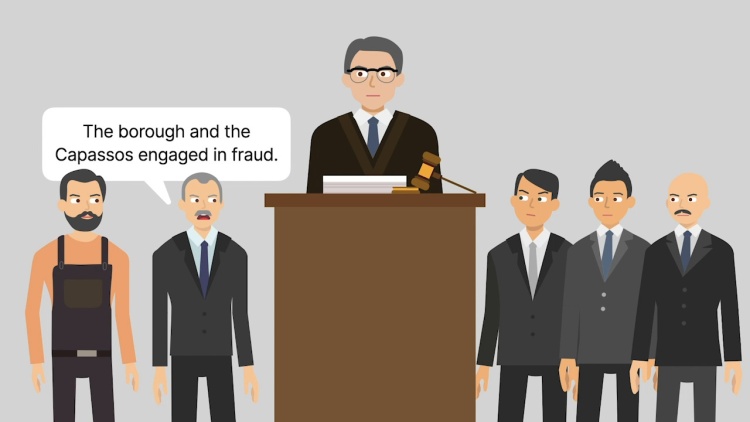Band’s Refuse Removal, Inc. v. Borough of Fair Lawn
Superior Court of New Jersey, Appellate Division
163 A.2d 465 (1960)

- Written by Sean Carroll, JD
Facts
The Borough of Fair Lawn (borough) (defendant) sought bids for the collection of garbage within the borough. The Capassos (defendants) won the bid, signed a contract with the borough, and began collecting garbage. Soon after, the borough adopted an ordinance that required a permit to collect garbage within the borough and provided that only those who had a contract with the borough could be granted a permit. At the time the ordinance was adopted, Band’s Refuse Removal, Inc. (Band’s) (plaintiff) had a contract to collect garbage from an electric plant in the borough. The new ordinance effectively prohibited Band’s from continuing to collect garbage from the electric plant because Band’s did not have a contract with the town. At about the same time, a grand jury investigation alleged that the borough’s bidding process for the garbage collection contract was rigged. Band’s brought suit, alleging that the ordinance was unconstitutional and that the Capasso contract was invalid because it was not the result of an open bidding process. Prior to the trial, Band’s’ attorney mentioned to the trial judge that he was considering dropping the allegation of the impropriety of the bidding process. In response, the trial judge said that if the attorney did so, the judge would “immediately declare the [Band’s-electric plant] contract void.” Subsequently, at trial, the trial judge stated that it was “imperative in the public interest” that the issue of the bidding process be investigated. Accordingly, he appointed an amicus curiae to take part in the trial on that issue. He also issued subpoenas, called witnesses, and offered exhibits in trial. He then proceeded to rule on his own questioning of witnesses and the admissibility of his own exhibits. In all, the judge arranged or called about five times as many witnesses as the parties to the case combined. In the end, the trial judge ruled that the Capasso-Fair Lawn contract was invalid. The defendants appealed on the grounds that the trial was conducted inappropriately by the trial judge.
Rule of Law
Issue
Holding and Reasoning (Goldmann, J.)
What to do next…
Here's why 907,000 law students have relied on our case briefs:
- Written by law professors and practitioners, not other law students. 47,100 briefs, keyed to 996 casebooks. Top-notch customer support.
- The right amount of information, includes the facts, issues, rule of law, holding and reasoning, and any concurrences and dissents.
- Access in your classes, works on your mobile and tablet. Massive library of related video lessons and high quality multiple-choice questions.
- Easy to use, uniform format for every case brief. Written in plain English, not in legalese. Our briefs summarize and simplify; they don’t just repeat the court’s language.





